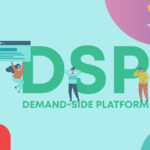This two-part op-ed series explores how modern marketing and technology practices can evolve toward more ethical, intentional and human-centered systems. It invites marketers to rethink their role in shaping digital culture, offering frameworks rooted in dignity, equity and sustainability.
By Tina Morwani
Part 2: Data Colonialism Isn’t a Metaphor
Part 1: The Hidden Emissions of Your Ad Campaign available here
When platforms extract value from communities without consent or reciprocity, they recreate the logics of empire.
Colonialism once claimed land. Today, it claims behaviour.
Every day, across continents, people generate data by living their lives. A teen in Nairobi scrolls through an app built in Silicon Valley. Her preferences, clicks and connections become insights. Refined, packaged and sold to advertisers she will never know. The value created flows upward and outward. The benefits rarely return.
This is data colonialism: the extraction of digital resources from communities without meaningful consent, benefit or sovereignty. It’s not an analogy. It’s a structure; one that echoes the patterns of old empire in new, algorithmic form.
Much of this is legal. Almost all of it is invisible.
Global tech companies build systems that operate beyond the bounds of national accountability. They collect at scale, train models on language and culture they don’t understand, and distribute content optimized for engagement, not equity. The result? Power that is centralized, while value and risk are outsourced.
And the harm isn’t abstract. It touches financial access, employment, healthcare, immigration. When predictive systems trained on biased or incomplete data make decisions, the exclusion is systemic. Structural. Difficult to trace, and harder to reverse.
So what does ethical, inclusive design look like in this context? How do we disrupt the cycle of extraction and begin to build systems rooted in reciprocity?
We start by understanding that data is not neutral. Its collection, categorization and commercialization are acts of power. And with that power comes responsibility.
Brands, platforms and marketers can implement the G.R.A.C.E. framework – a path toward ethical data practices that recognize dignity, restore trust and rebalance agency.
Governance:
Ensure data policies are clear, enforceable and transparent.
- Establish cross-functional data ethics councils.
- Support third-party audits of machine learning tools and data use practices.
- Align with international human rights standards in data governance frameworks.
Reciprocity:
Center shared benefit, not just corporate value.
- Build data relationships that give back to the communities from which insights are drawn.
- Compensate contributors when data drives innovation or revenue.
- Reinforce ethical sourcing of data like we would raw materials.
Accessibility:
Make systems usable, understandable and inclusive by design.
- Design for multilingual, low-bandwidth and low-literacy environments.
- Publish plain-language privacy and data use statements.
- Prioritize digital access, literacy and ethical AI development for underserved communities most affected by extraction.
Context:
Recognize that data lives within social, historical and cultural frames.
- Involve local voices in product design, research and testing.
- Tailor algorithms and outputs to reflect lived realities, not flatten them.
- Avoid applying Western norms universally in UX and data modeling.
Equity:
Treat inclusion as a structural design principle, not a post-launch fix.
- Audit systems for asymmetry. Who gains from this data, and who is left out or exposed?
- Track representation within datasets, teams and decision-making processes.
- Invest in accessibility and bias mitigation as core budget line items.
This isn’t about discarding technology. It’s about asking better questions of it.
We often celebrate the reach of digital platforms. But scale without care is not innovation. It’s replication. And if we don’t pause to examine the values we code into our systems, we risk building a future that inherits the worst of our past.
Digital doesn’t have to be extractive. It can be reciprocal. Relational. Respectful. But only if we choose to make it so. Because the most powerful design isn’t the one that predicts behaviour. It’s the one that honours it.
About the Author
Tina Morwani is an award-winning marketer, advisory board member, mentor and DEI & mental health advocate. Check her out on LinkedIn.











